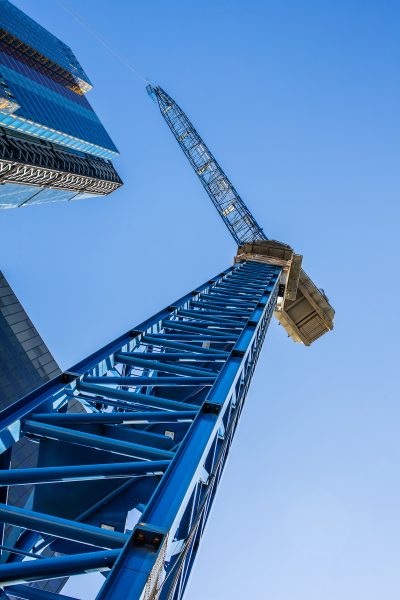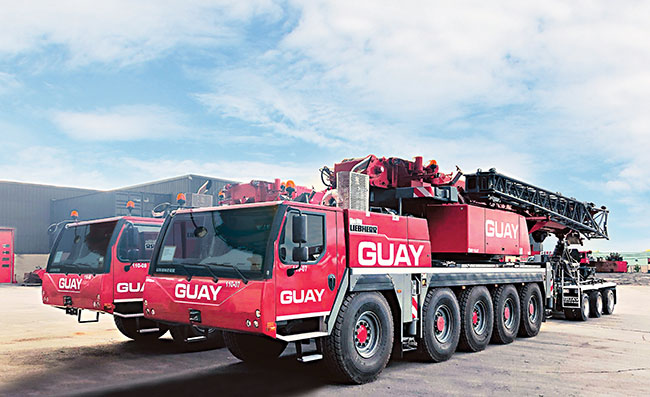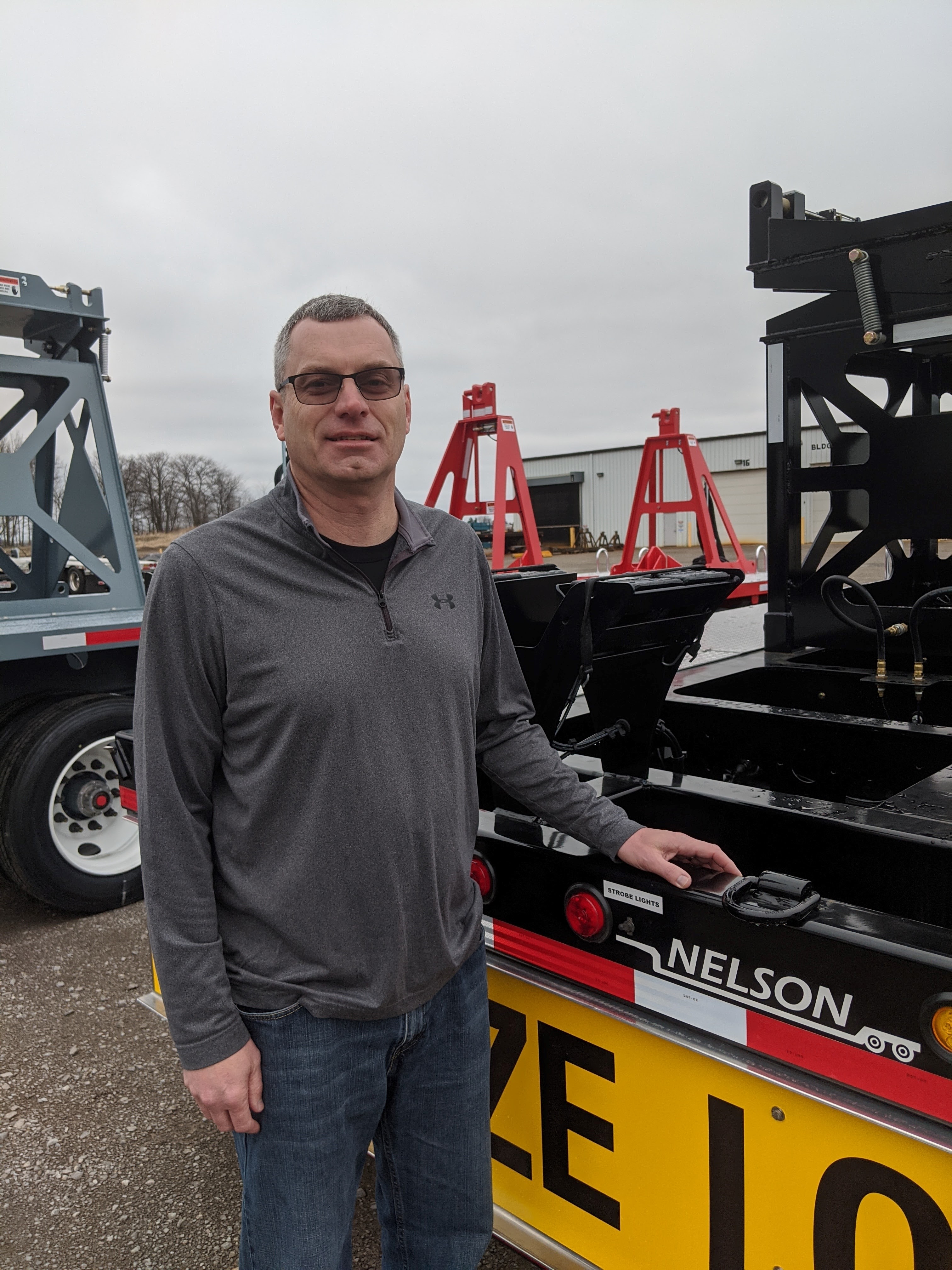
Features
Cranes
Education & Training
Projects & Infrastructure
Maintaining dealer relationships during a pandemic
December 16, 2020 By Saul Chernos

With measures designed to contain COVID-19 putting conventions, trade shows and other face-to-face meetings on pause, players in the crane sector are finding new ways and relying on age-old standbys to build and reinforce strong business relationships across the supply chain.
Québec City-based crane rental and services provider Grues Guay is a case in point. Vice-president Guillaume Gagnon says representatives routinely attend events such as Bauma, CONEXPO-CON/AGG and the annual meeting of the Crane Rental Association of Canada (CRAC) in order to meet with manufacturers, often for the first time, and see their wares. Grues Guay personnel also visit factories directly, chatting up sales personnel, watching equipment in various stages of production and at least metaphorically kicking the tires. And Grues Guay hosts manufacturers wanting to visit to better understand the Québec market and gain a firsthand view of the company’s operations and needs.
“We see crane manufacturers as a team member,” Gagnon says. “If they didn’t develop their products, we wouldn’t be able to rent cranes to our customers.” More to the point, however, a front-line company like Grues Guay relies on manufacturers whenever equipment needs troubleshooting or repair, so close relationships help ensure strong manufacturer support so Grues Guay can meet customer expectations. “We’re only as strong as the weakest link in the chain, so we really rely on them not only for building their product but also doing after-service,” Gagnon explains.

Of course, COVID has hampered face-to-face connectivity. “It’s become more virtual,” Gagnon says matter-of-factly, acknowledging his company now relies on webinars and other forms of online communication. “We have to do it,” Gagnon says. “There’s no other choice.”
While moving existing business relationships online is challenging, forging new contacts can be even more daunting. “If you don’t know a particular manufacturer, it’s hard to start just by phone or a conference call,” Gagnon says. “We miss the human contact and hope the situation will come back to normal as quickly as possible.”
The current health crisis highlights the imperative of building and maintaining solid business relationships and laying the groundwork when times are good. “The strong relationships we’ve built over time have allowed us to communicate by phone, videoconference or e-mail without the need to present ourselves,” Gagnon says.
An additional challenge for Grues Guay—and for many other crane rental and services providers—is that relationships with manufacturers are generally not exclusive. Gagnon lists close to a dozen brands the company carries and says versatility is crucial. “When you need a crane suddenly, you need to have more options because timing is important.”
Also critical are a machine’s dimensions, lifting capacity, load chart specifications and innovative abilities, as well as price, availability and reliability. All these factors help justify a strong business relationship with suppliers, Gagnon says. “If a crane breaks down, you need somebody who’s going to be proactive, help you out and help mitigate downtime for your customer. If a crane is broken during a refinery shut down, your customer will be really unhappy if they’re losing a million dollars a day of production.”
Don Hnatuk, president of Prairie Crane in Saskatoon, says it’s vital to do preliminary research before purchasing anything significant and to follow that up by checking with trusted business colleagues for references. “We do a lot of footwork beforehand and know where in the market we want to be, and then we go to the people we know are going to give us the best products and services.”
Prior to purchasing two new all-terrain cranes a few years ago, Hnatuk made multiple inquiries with colleagues to scope out a manufacturer’s reputation. For a modest-size service provider, these represented a significant investment, so it was especially important that the manufacturer, with which Hnatuk dealt directly, would be reliable and the machines would meet Prairie Crane’s needs. “We were told they looked after (customers) and the parts would be accessible when needed,” Hnatuk says. When the salespeople finally came calling, it was clear the manufacturer wanted the business, and the effort has since met expectations, he adds.
On the other hand, less than stellar experiences include distributors not always returning phone calls or providing prompt service. “We asked for a quote about a week and a half ago and we still don’t have it,” Hnatuk says. Sometimes, distributors don’t answer or return calls on weekends. “Our industry is 24/7, and if they are going to offer after-hour services then they should be available,” Hnatuk says.
An additional sore point is that some distributors rent directly equipment, albeit without an operator, to end users. This effectively bypasses service providers like Prairie Crane, who are also customers, Hnatuk says. “We’re competing against the guys I want to rent or purchase it from. That’s happening in the marketplace a little bit, and it’s not a good thing.”
Tony Niese, president of Ottawa, Ohio-based Nelson Manufacturing, says a straightforward approach to relationships can help when conflicts and complexities arise. “We have open communication with our dealer network, and if an end user is trying to go around them we’re in communication with them and we try to be up-front about it,” Niese says.

Tony Niese, president of Ottawa, Ohio-based Nelson Manufacturing. Image: Nelson Manufacturing
Nelson Manufacturing builds crane dollies, boom launch trailers and related accessories and does enough business in Canada that Niese recently joined CRAC’s board of directors. “We’ve been a member for 15 years or so,” Niese says, explaining the value of attending association and other industry events or, alternatively due to COVID, keeping in virtual contact with crane rental and service providers north of the border.
CRAC and other industry groups attract upper management personnel and owners and present Niese and his team with a myriad of opportunities to discuss issues such as rigging, oversize loads and permitting and to hear from customers and non-customers alike. “It helps us stay attuned to what’s going on,” Niese says.
While Nelson personnel routinely visit new customers to train them on-site, Niese says relationships are a two-way street and it’s crucial to hear what end users have to say. “In some cases, our customers know more about our product than we do. They know how it performs, they know if they’re happy with it, and they know what they want it to do better, so we need to get that information from them.”
With COVID-related travel restrictions, webinars can bring engineers, salespeople and end users into the same virtual room. “In years past the sales guy would stop in,” Niese says. “With (online communications), we can get more people involved than if we’d tried to do a face-to-face meeting. We can share pictures, videos and 3D CAD models and go over how we want something to work and collaboratively come up with solutions.”
Print this page